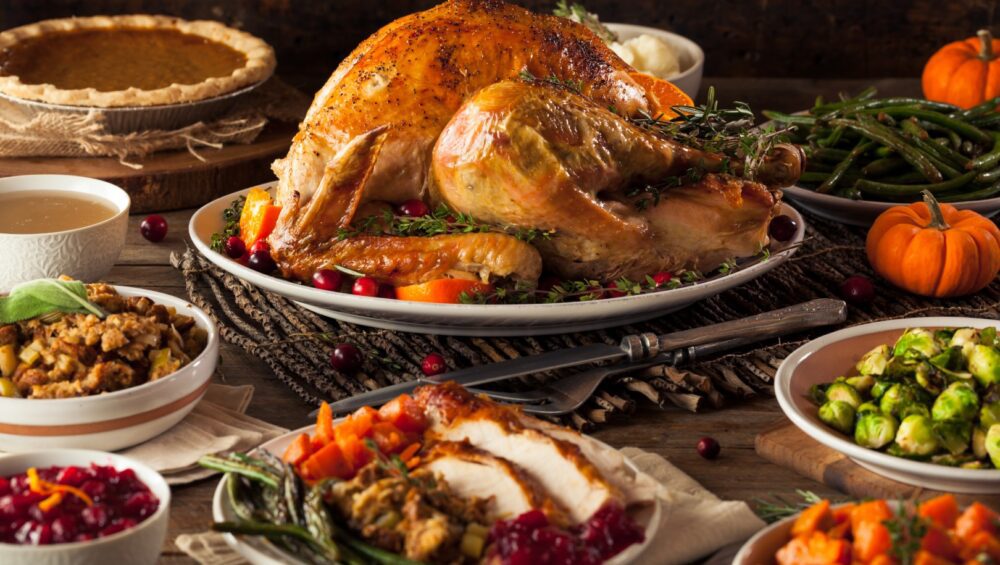Thanksgiving is a time to express gratitude and share a meal with family and friends, but it can also be stressful and lonely for seniors who may have health problems, dietary restrictions, or limited social support. However, there are many ways to help seniors enjoy Thanksgiving and make them feel loved and appreciated. Here are seven easy ways to help seniors celebrate Thanksgiving:
- Help them plan and prepare the Thanksgiving meal. Cooking a Thanksgiving meal can be a daunting task for seniors, especially if they have physical or cognitive impairments. You can help them plan and prepare the meal by offering to shop for groceries, chop vegetables, peel potatoes, or bake pies. You can also help them cook some dishes ahead of time and freeze them, or order some food from a catering service or restaurant. Helping them plan and prepare the meal can reduce their stress and workload, as well as give them a sense of accomplishment and satisfaction.
- Accommodate their dietary needs and preferences. Seniors may have different dietary needs and preferences than younger people, such as low-sodium, low-fat, low-sugar, or gluten-free diets. You can accommodate their dietary needs and preferences by modifying some recipes, using healthier ingredients, or offering some alternatives. For example, you can use low-sodium broth, butter, or gravy; use applesauce or mashed bananas instead of sugar; use almond flour or oat flour instead of wheat flour; or offer some salads, fruits, or nuts instead of bread or stuffing. Accommodating their dietary needs and preferences can make them feel more comfortable and enjoy the food more.
- Include them in the Thanksgiving traditions and activities. Thanksgiving is a time to celebrate traditions and create memories with family and friends. You can include seniors in the Thanksgiving traditions and activities by inviting them to join the table, say grace, share what they are thankful for, or tell stories. You can also include them in some fun activities such as playing games, watching movies, listening to music, or taking photos. Including them in the traditions and activities can make them feel more connected and valued.
- Help them stay warm and comfortable. Seniors may feel colder than younger people due to lower metabolism, thinner skin, or poor circulation. You can help them stay warm and comfortable by adjusting the thermostat, providing blankets, sweaters, or slippers, or offering hot drinks such as tea, coffee, or cocoa. You can also help them stay comfortable by providing pillows, cushions, or chairs that support their posture and mobility. Helping them stay warm and comfortable can improve their mood and well-being.
- Help them stay safe and healthy. Seniors may face some risks and challenges during Thanksgiving, such as falls, injuries, infections, or allergies. You can help them stay safe and healthy by removing any clutter, cords, rugs, or slippery surfaces that may cause falls; providing adequate lighting, handrails, or grab bars that may prevent injuries; ensuring proper hygiene, ventilation, or sanitization that may prevent infections; or avoiding any foods, flowers, or candles that may trigger allergies. Helping them stay safe and healthy can prevent any accidents or complications.
- Help them connect with their loved ones. Seniors may feel lonely or isolated during Thanksgiving if they live alone, far away from their family or friends, or have lost their spouse or partner. You can help them connect with their loved ones by calling them on the phone, video chatting with them online, sending them cards or letters, or visiting them in person. You can also help them connect with other seniors who may share similar interests or experiences by joining a senior center, a support group, or a volunteer program. Helping them connect with their loved ones can reduce their loneliness and increase their happiness.
- Help them cope with their emotions. Seniors may experience different emotions during Thanksgiving such as joy, gratitude, nostalgia, sadness, anger, or guilt. You can help them cope with their emotions by listening to them empathetically, validating their feelings, offering comfort or encouragement, or suggesting professional help if needed. Helping them cope with their emotions can improve their mental health and resilience.
These are some of the easy ways to help seniors enjoy Thanksgiving and make them feel cared for and respected. By doing these activities with seniors, you can also strengthen your relationship with them and create some meaningful memories. Thanksgiving is not only for young people but for everyone who wants to express gratitude and share joy with others.
Happy Thanksgiving!





